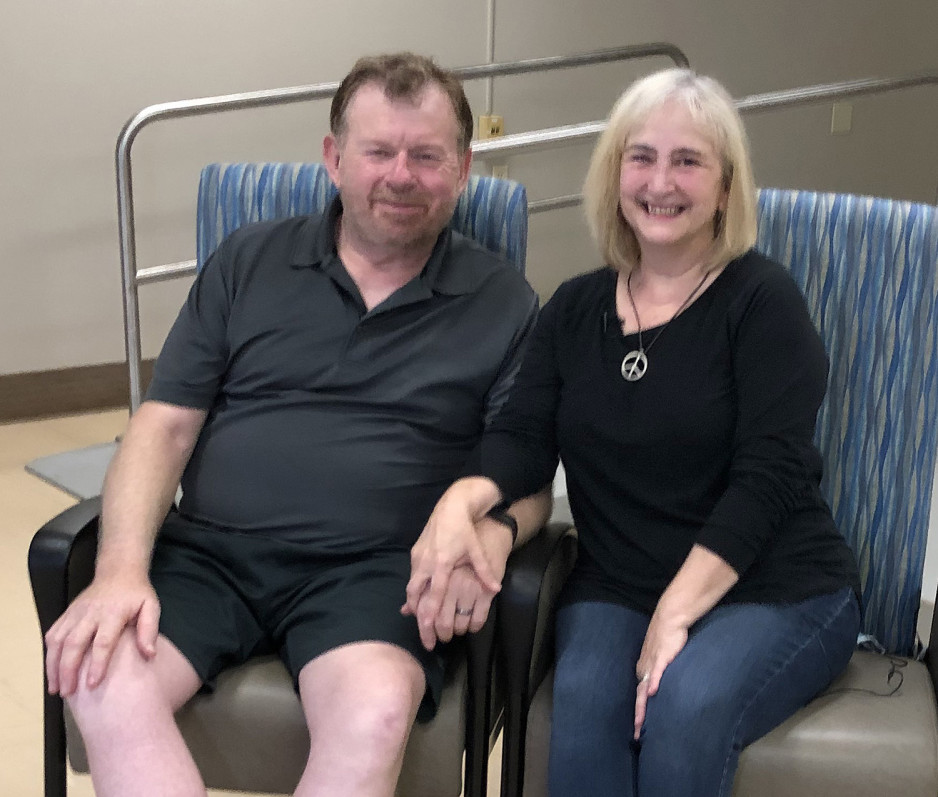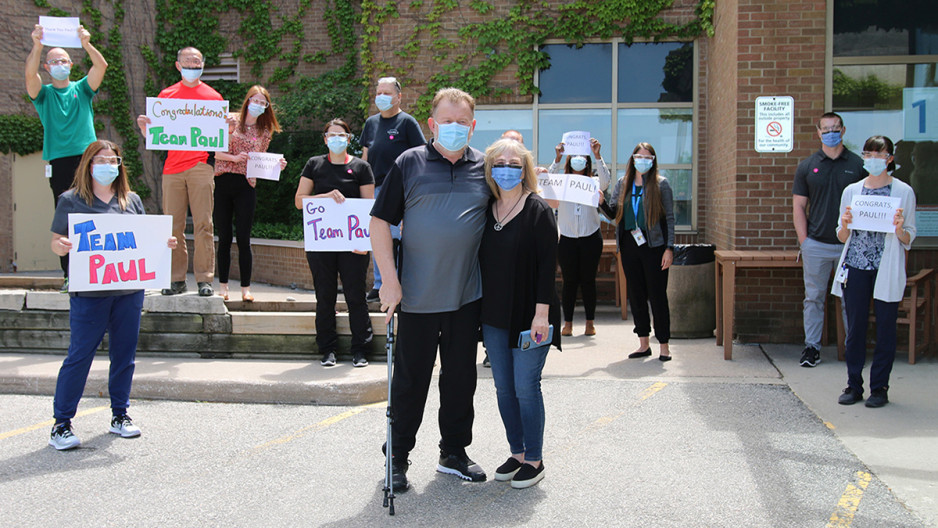Partnering to improve care
It took less than 30 minutes for Brenda Martin’s life to change forever. It was early one morning in 2019 when Brenda’s husband Paul asked her to call 911, saying he could no longer feel his legs. After days of testing, Paul was diagnosed with acute onset transverse myelitis, a rare neuroimmune disorder where inflammation damages the insulating material (myelin) covering the nerves along the spine. Without this protective coating, signals from the brain to the spine and back cannot occur. Paul was paralyzed by his condition from the waist down.
Paul came to St. Joseph’s Health Care London’s Spinal Cord Injury (SCI) Rehabilitation Program at Parkwood Institute for rehabilitation where he had to relearn how to sit, stand and walk. “Our world and how we could live in it changed… all of a sudden everything you thought you had planned for the future had to stop and be re-evaluated,” remembers Brenda.
Throughout Paul’s recovery journey, Brenda was involved as a partner in his care. “Being included was really powerful for me, it made a big difference, having a voice. From the first day…(the team) made sure I was included in his schedule, made sure I knew I was welcome to participate in his therapies… it made me less afraid. I was touched that people wanted my input, wanted to know how I felt, because in the midst of this type of trauma you sort of feel forgotten.”
Partnering with patients, residents and caregivers is the responsibility of all who work and practice at St. Joseph’s, supported by the organization’s Care Partnership Office.
As part of this commitment, Brenda and Paul were invited to become formal Care Partners with the rehabilitation team, working to co-design a patient information portal as part of a research project. They also provided input on tools to help patients and caregivers navigate life after a spinal cord injury.
“It’s been…empowering for us because it’s made us realize that our voices are important and we also feel like people in our health care system really do care about us,” adds Brenda. They enjoyed their Care Partner roles so much they became members of Parkwood Institute Main Building’s Patient and Family Caregiver Advisory Council.
The council is made up of patients, caregivers and staff from all care areas at Parkwood Institute Main Building. Members are provided opportunities to co-design care delivery from participating in creating and reviewing patient information and education materials to sharing ideas on the construction of new spaces, like the revamped cafeteria.
Brenda says sharing her knowledge has helped her move forward. “If we can give our time and our input with lived experience and maybe make the system a little bit better for the next person, then that means this hasn’t all been in vain. If we can help others… that’s the best.”
Learn more:
- Becoming a Care Partner at St. Joseph’s.

